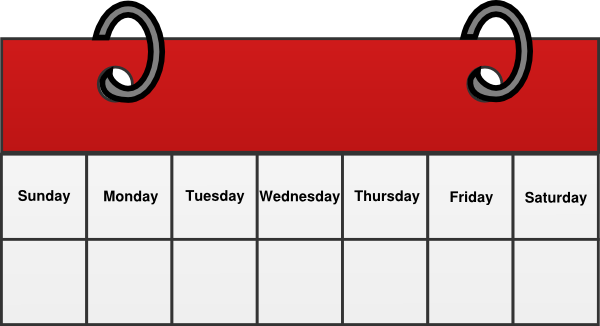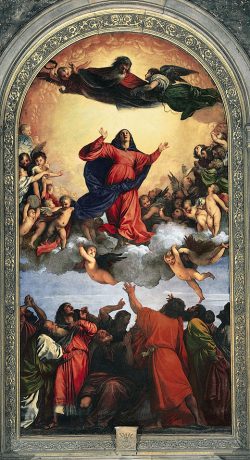Forgive and Be Forgiven
Sermon Preached for the 22nd Sunday after Trinity, November 5, 2023, by Fr. Allen
“So likewise shall my heavenly Father do unto you, if ye from your hearts forgive not every one his brother their trespasses.” In the Name of the Father, and of the Son, and of the Holy Ghost. Amen.
With today’s Gospel Reading, we return to a common theme of Jesus’ (especially in Matthew’s Gospel) and that is the centrality and necessity of forgiveness in the life of His disciple. In Matthew 5, He commanded His followers to “pray for those who persecute you, so that you may be sons of your Father in heaven” (v.44-45), and then when He taught them how to pray, He included everyone’s favorite petition: “forgive us our debts, as we also have forgiven our debtors” (6:12). He wanted everyone to understand that “if you forgive others their trespasses, your heavenly Father will also forgive you, but if you do not forgive others their trespasses, neither will your Father forgive you your trespasses” (v.14). Now, we hear Peter wanting some clarification, “Ok, that’s great, but how many times of forgiving are we talking about?” The Parable of the Unforgiving Servant is Jesus’ answer, and that is what I want us to consider this morning (18:21-35). As we do so, we can find five points every Christian needs to know about “forgiveness.”
By the time we get to vv.24-27, we know quite clearly where Jesus is headed with this parable. The first person we meet is said to have incurred a “ten-thousand talent” debt (each of those talents were equivalent to 15 years of labor, or 6,000 denarii). Thus, the story is about a man with an astronomical, unpayable debt with no capacity to pay it back, being forgiven by a mercifully, compassionate king (which is a clear picture of God). But then in v.28, this same servant goes out immediately demanding his fellow servant to pay back his personal debt of 100 denarii (100 days labor). When it becomes clear that his fellow could not repay, he responded not with merciful compassion but with exacting condemnation. And here we can begin to see our fist points about forgiveness.
The First is this: If God has forgiven our every offense, we ought to forgive the few offenses of our neighbors. If God forgives us the inconceivable, accumulated debt of our sins, which we have no way to pay back, shall we not forgive the small debts of the people in our lives? We know what the answer is: “Of course so.”
We can’t receive the forgiveness that we receive from God and be unforgiving over the petty things that offended us. God has given us forgiveness for an unpayable debt. To go out and choke people, as it were and throw them into debtors’ prison, where you don’t have to see them anymore because of small offenses, manifests that we are closer to the wicked servant than to the good and faithful one we think we are. God gives us mercy. That should teach us that we should give our debtors mercy as well.
Second to this, we can easily say, whoever has wronged, or offended, us, has wronged and offended God more. Thus, if God, the most offended, has forgiven, why can’t we?.
Now, from here the story continues as the man’s fellow-servants are deeply grieved by his hypocrisy and report him to their lord (v.31). We see here a third point, and that is, those who practice unforgiveness shouldn’t be surprised to find their circle of friend always shrinking (I mean sure they can find another church, but the same thing will happen there as well). People distance themselves from unforgiving people; they certainly do not call them friends. Nobody will want to do anything in your presence for fear that attitude will come to them.
But this isn’t the worst of it as we get to vv.32-34, where the once mercifully, forgiving Lord confronts the now-wicked-servant. By his merciless actions toward his neighbor, the wicked servant demonstrated what kind of judgement he actually wanted, which is our fourth point: failure to forgive will result in divine chastening. Our lives, not our lips, reveal to God how we want to be dealt with, and for those whose lives are merciless toward their neighbors in judgement, God will deal with you by our preferred standard (cf.Jms.2:13; Matt.7:2).
This all brings us to the final verse of the Parable (v.35), which we used as our opening prayer, and here we find our final point: the one who does not forgive will not be forgiven. Are we sons of satan with murderous unforgiveness in our hearts (cf.Jhn.8:44; 1Jhn.3:10), or sons of God with merciful forgiveness in our hearts. Our temporal hearts reveal our eternal home (Only a fool allows anger to resided in their heart, Eccl.7:9). Sons of satan will be cast out with satan, and the sons of God will dwell with him eternally. For “the hour cometh and now is when the true worshippers shall worship the Father in spirit and in truth. For the Father seeketh such to worship Him” Amen.





